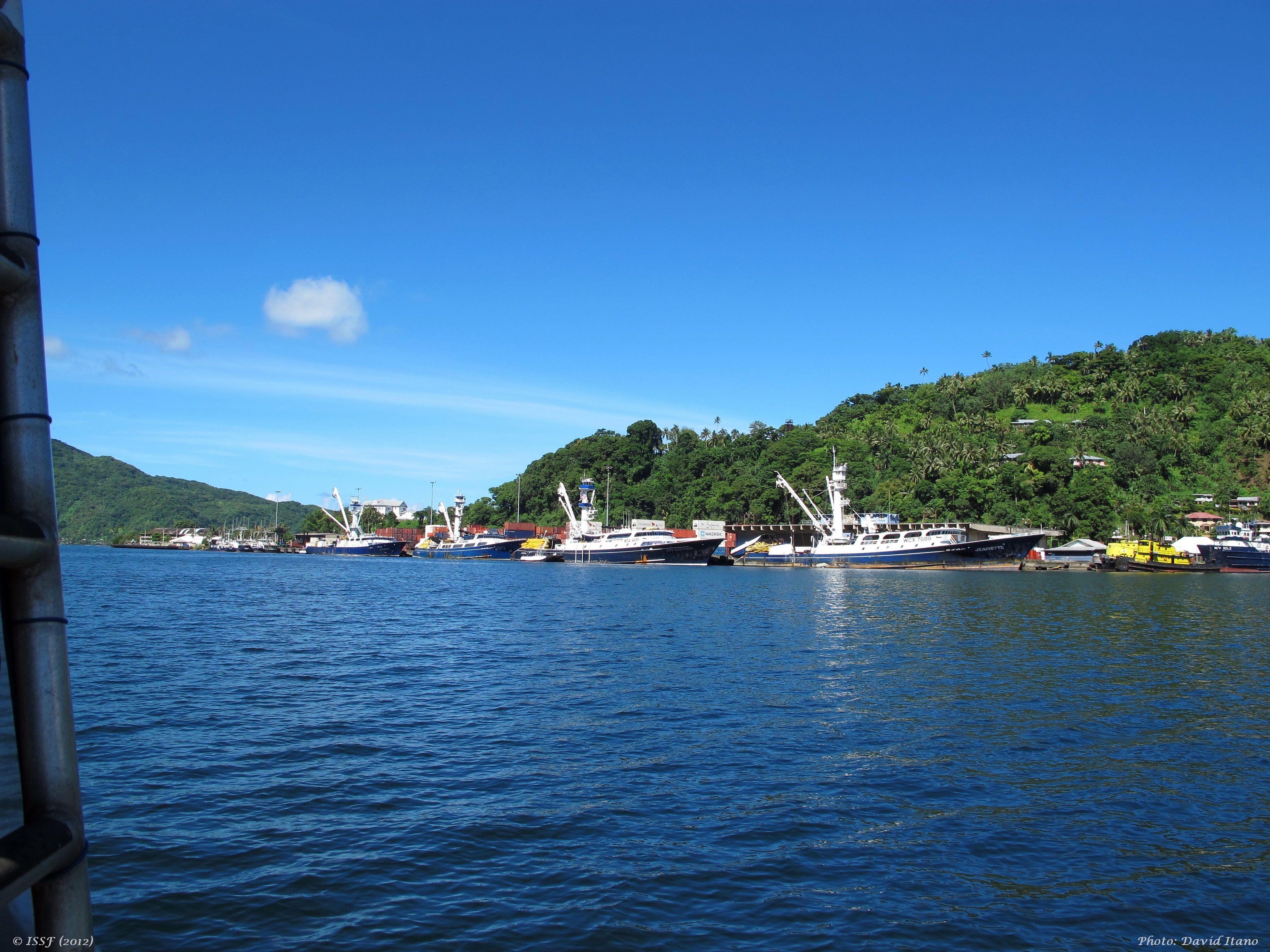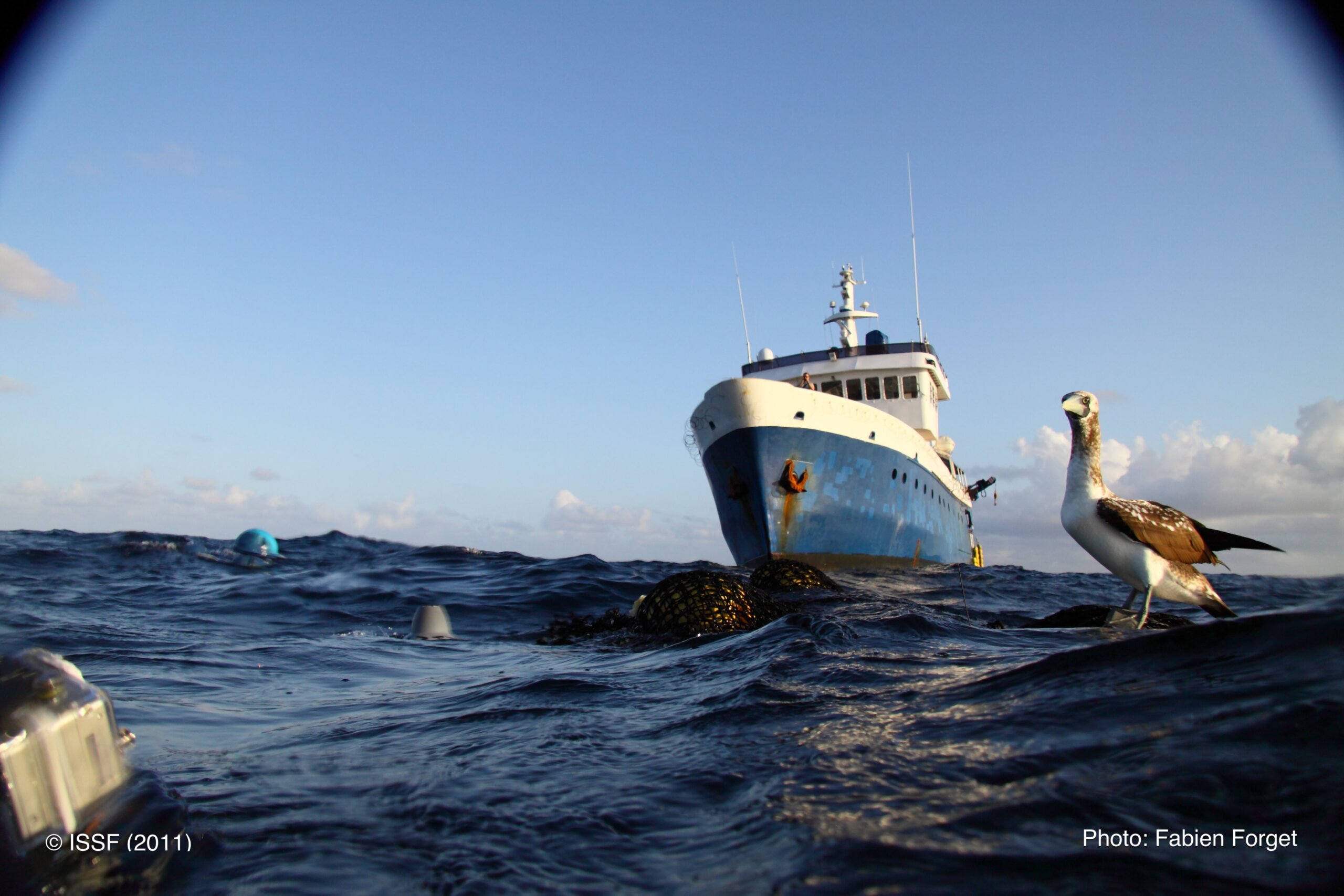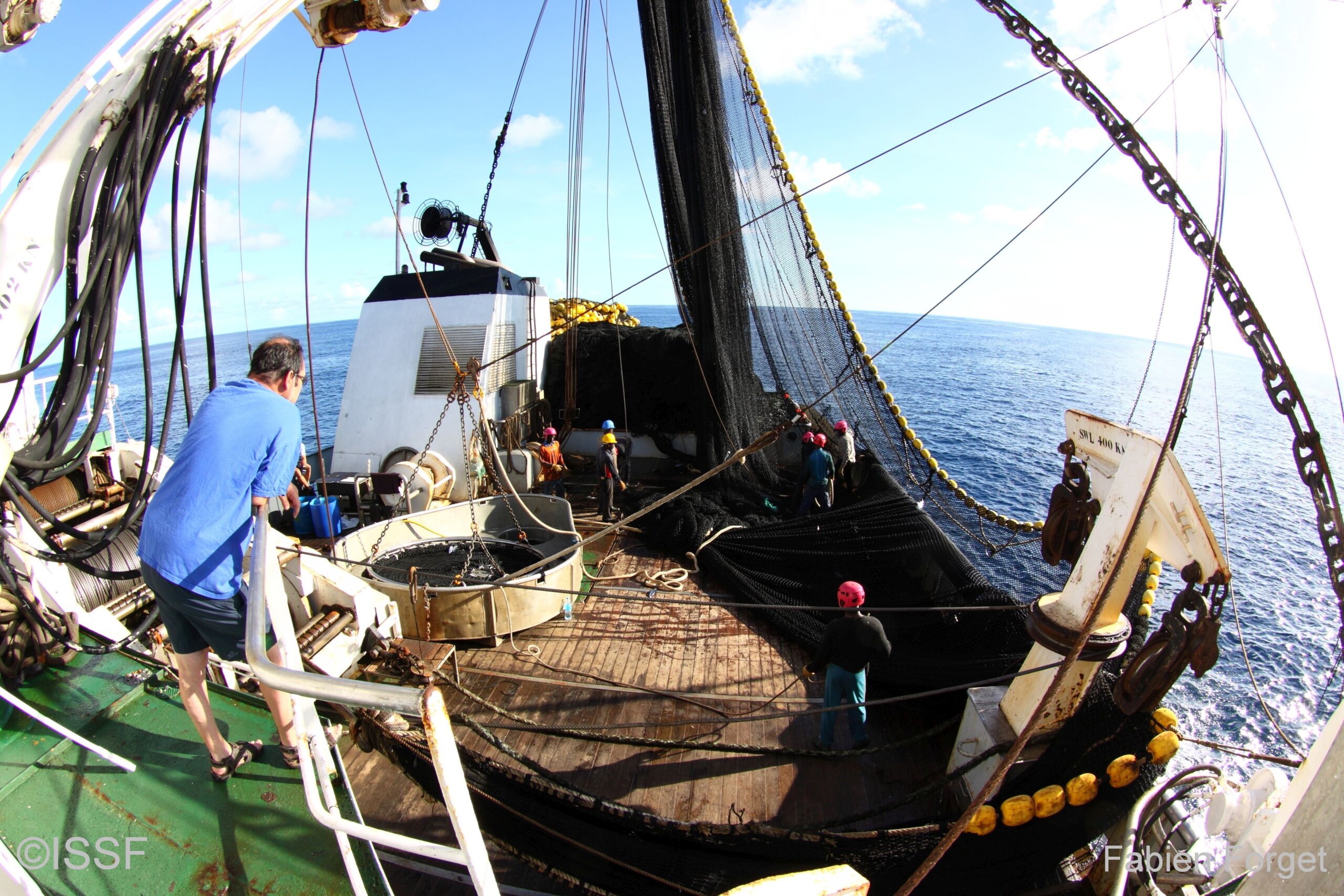
Protecting Resources in the World’s Largest Tuna Fishing Grounds
The Western and Central Pacific Fisheries Commission (WCPFC) is responsible for the effective long-term conservation and management of highly migratory fish stocks in the western and central Pacific Ocean (WCPO). With about 52 percent of the global production of tuna coming from the WCPO — catches of skipjack, yellowfin, and bigeye tuna in 2018 were 2,544,000 tonnes — it’s easy to see why organizations like ours are promoting the long-term conservation and management of Pacific fisheries.
This year, ISSF is urging the Commission to make progress on important elements of sustainable fisheries management, specifically harvest strategies and transshipment regulations, which will foster the long-term health of the region’s fisheries.
Commission Must Progress Harvest Strategies
ISSF is committed to supporting the development of rigorous harvest strategies for all tuna fisheries, including those managed by the WCPFC. A harvest strategy is a pre-agreed framework for recommending or making fisheries management decisions, such as setting catch limits, that is designed to achieve specific management objectives. ISSF works toward the goal of all tuna fisheries becoming capable of achieving the Marine Stewardship Council (MSC) certification standard without conditions. And the adoption of harvest control rules (HCRs) and harvest strategies are key elements of the MSC certification standard.
The clock is ticking for the Commission on this critical matter. Despite the commitments in the WCPFC Harvest Strategy Work Plan, there has been a disappointing level of discussion and progress in the Commission: the timeframes in the original Work Plan have lapsed. WCPFC urgently needs to develop species-specific harvest strategies and HCRs.
Further, tuna from the WCPO comprise the majority of the MSC-certified tuna available globally. The MSC has established hard deadlines regarding these elements of certification, and if these deadlines are not met via swift management decisions by the WCPFC, these fisheries risk losing certification. For example, if WCPFC does not adopt harvest control rules by 2021 for southern albacore, skipjack and yellowfin stocks, and by 2023 for the northern albacore stock, the current MSC certification for these stocks will be suspended.
With these factors in mind, ISSF is urging WCPFC fisheries managers to progress the adoption of harvest control rules by acting decisively at their annual meeting to:
- Develop harvest control rules for skipjack and south Pacific albacore, and agree on a target reference point for yellowfin and bigeye tunas, in line with the Harvest Strategy Work Plan
- Establish a Science-Management Dialogue by adopting the Terms of Reference proposed by the WCPFC Scientific Committee
Better Management of At-Sea Activities
Transshipment is the transfer of fish or fish products, at sea or in port, from one fishing vessel to either another fishing vessel — or to a vessel used solely for the carriage of cargo — for further transport. At-sea transshipments are of concern in fishery management since, if not properly monitored, they can complicate the collection of accurate data and the traceability of product, creating a fertile environment for IUU fishing activities.
According to Commission data, the number of high-seas transshipment events has increased by 155 percent between 2014 and 2018. And reports presented at the WCPFC Technical and Compliance Committee show continued non-compliance by the member nations that authorise vessels to transship at sea. These 10 nations are failing to meet the deadlines for required reports like advanced notifications and transshipment event reports.
It’s time that WCPFC addresses the deficiencies in its transshipment measure that are exacerbating and perpetuating this situation. Specifically, ISSF is urging the WCPFC to adopt amendments to its transshipment measure in line with best practices, which are being also advanced by many other partners, to:
- Require real time reporting for all transshipment activity
- Require members to report on at-sea transshipment conducted inside EEZs
- Extend the transshipment management arrangements to bunkering vessels
- Automatically include in the draft IUU vessel list any vessels that breach the transshipment measure, and adopt clear criteria for flag State authorization of at-sea transshipment and a process for the Commission to review issued authorizations against those criteria
- Require 100 percent observer coverage for longline vessels, and all vessels engaged in at-sea transshipment, within five years
To learn more about ISSF priorities for the upcoming WCPFC meeting, review our full position statement: https://www.iss-foundation.org/what-we-do/influence/position-statements/download-info/2019-wcpfc-position-statement/. For more on recommended management best practices at tuna RFMOs and how they are being met, review ISSF’s series of RFMO Best Practices Snapshots: https://www.iss-foundation.org/what-we-do/influence/rfmo-best-practices-snapshots/
We hope you will join our efforts to urge progress on these priorities by advocating for action at the upcoming WCPFC meeting. You can do this by meeting with national delegations that will be tabling proposals and making the decisions at the meeting; vessel and industry representatives that attend as part of these national delegations and who exercise influence over the positions their governments take; and FIPs, tuna processors, retailers, and buyers to encourage them to also advocate for concrete action at WCPFC.


